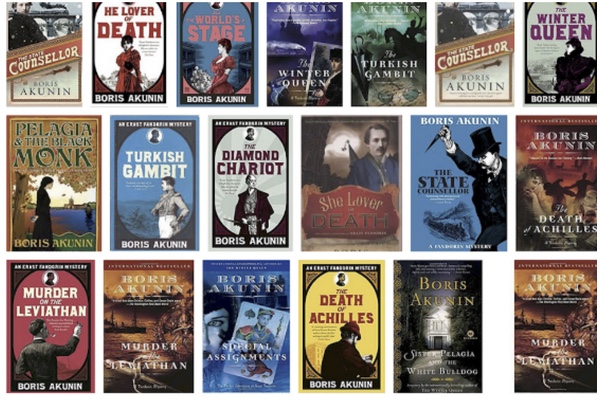Boris Akunin: the evolution of Russia’s dissident detective novelist into a master historian

This month, Grigory Chkhartishvili, who writes under the pseudonym Boris Akunin, will bid farewell to Erast Fandorin, the ingenious sleuth he created for the detective novels that have made him one of Russia’s most well-known writers. The last book featuring Fandorin, ironically titled Not Saying Goodbye, is set to be published on February 8, exactly 20 years to the day after the release of The Winter Queen, the first Fandorin novel. Fans of the eccentric detective will finally be able to find out whether he will be killed off — or will live happily ever after.
Whatever Fandorin’s fate, the character is inextricably associated with Chkhartishvili. Millions of Fandorin books in dozens of languages have been sold over the course of two decades, making the 61-year old Chkhartishvili famous and wealthy.
There is “a bit of sadness”, the author admits, at the prospect of leaving behind Fandorin and the stylised tsarist-era world he inhabits. But he says “relief” is the overwhelming emotion. “I have outgrown this game. I am motivated by other interests now,” he says in an email exchange, his preferred way of giving interviews.
In recent years, the immensely prolific Chkhartishvili (he has over 55 books to his name) has switched his focus to the past — and has been working on a monumental nine-volume history of the Russian state up to 1917. The first volume, History of the Russian State: From Origins to the Mongol Invasion, appeared in 2013. Last year, he published the fifth volume about Peter the Great.
Some hail Chkhartishvili as a bellwether for modern Russia: the Fandorin books were beautiful escapism for Russians experiencing political collapse and economic chaos after the fall of the Soviet Union — while his turn to history reflects a search for self-identity under an increasingly ossified and authoritarian regime. But he has also encountered criticism. Some professional historians express anger about the hubris of a fiction writer slipping so easily into their discipline. After the appearance of the first volume, Russian historian Igor Danilevsky dismissively described Akunin’s history as “folk-history” written “by a dilettante for dilettantes”. ...